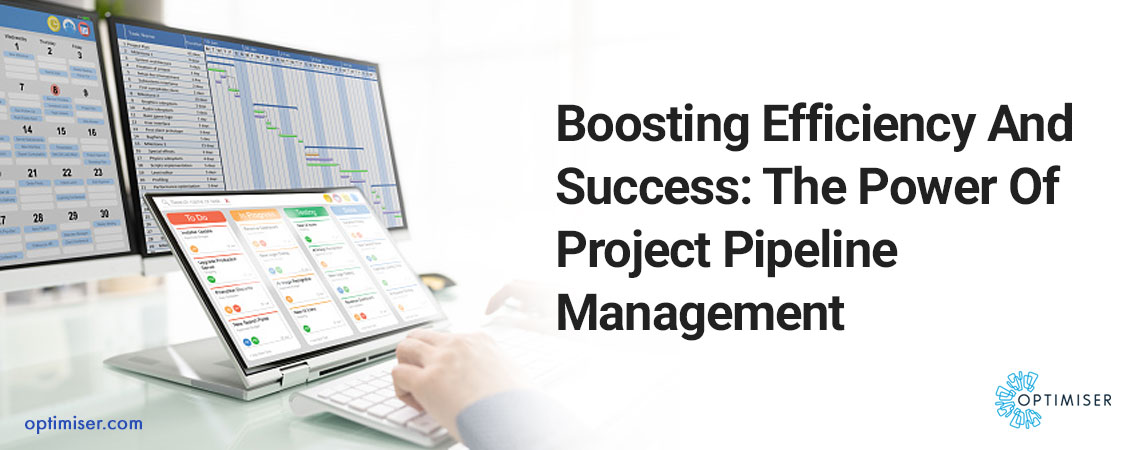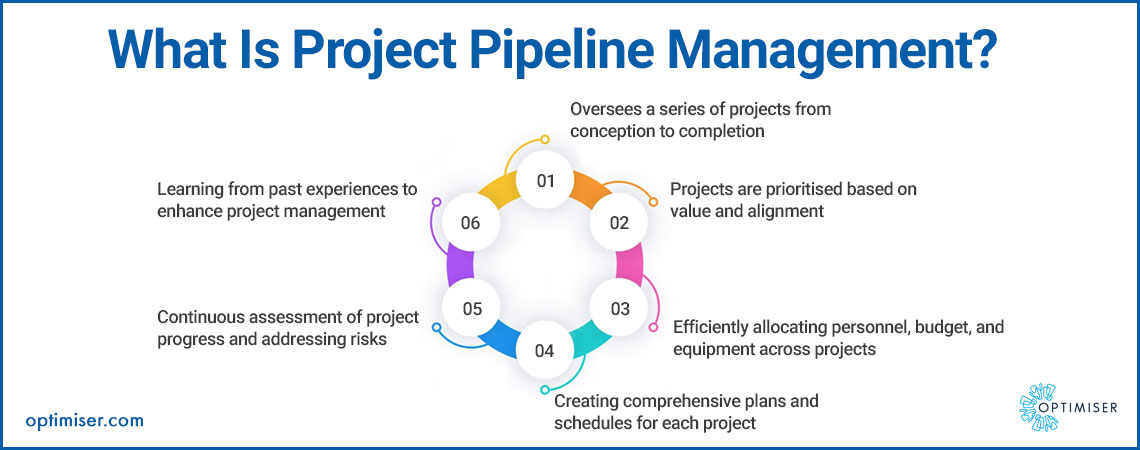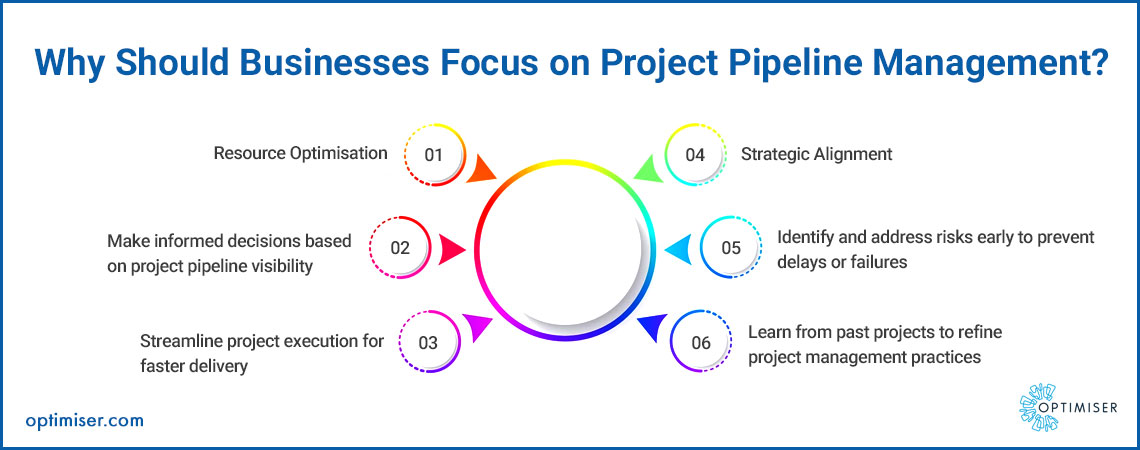
Boosting Efficiency And Success: The Power Of Project Pipeline Management
A project management pipeline refers to a systematic approach or framework that guides the execution of projects from initiation to completion. It encompasses the entire project lifecycle and contains various stages, processes, and project management software and tools used to manage and deliver projects effectively.
The pipeline begins with project initiation, where the project's objectives, scope, stakeholders, and constraints are identified and defined. This phase involves conducting feasibility studies, creating business cases, and securing necessary approvals.
Once the project is initiated, the pipeline moves into the planning phase. Here, project managers and teams define project milestones, create detailed project plans, allocate resources, and develop a comprehensive schedule. The planning phase also involves risk identification and mitigation strategies to ensure potential issues are addressed proactively.
Next comes the execution phase, where the project plan is put into action. Tasks are assigned to team members, and project managers oversee the progress, manage changes, and monitor performance against predefined metrics. Effective communication, coordination, and collaboration among team members are crucial during this phase.
Following the execution, the pipeline enters the monitoring and controlling phase. Here, project managers track project progress, measure performance, and compare it against established benchmarks. They identify and address any deviations, make adjustments, and ensure project objectives are being met.
The final phase is project closure, where the project is formally completed. This involves conducting a project review, documenting lessons learned, and archiving project-related documents. It also includes celebrating project success and acknowledging the contributions of team members.

Why Should Businesses Focus On Project Pipeline Management?
- Strategic Alignment
Project pipeline management ensures that projects align with the strategic goals and objectives of the organisation. By evaluating and selecting projects based on their alignment with the company's vision and priorities, businesses can ensure that resources are allocated to initiatives that contribute to long-term success. It helps in avoiding project sprawl or pursuing projects that do not align with the organisation's strategic direction.
- Resource Optimisation
Effective project pipeline management allows businesses to optimise the allocation of resources such as budget, personnel, and equipment. By evaluating the resource requirements of each project and considering the overall capacity and constraints of the organisation, businesses can allocate resources in a way that maximises efficiency and minimises conflicts. It prevents overutilisation or underutilisation of resources and ensures that projects are adequately supported.
- Risk Mitigation
A well-managed project pipeline enables businesses to identify and mitigate risks early on. By conducting thorough feasibility studies and risk assessments during the project initiation phase, organisations can identify potential challenges, dependencies, and constraints. This proactive approach allows for the development of appropriate risk management strategies, contingency plans, and mitigation measures, reducing the likelihood of project delays, failures, or cost overruns.
- Improved Decision-Making
Project pipeline management provides businesses with a holistic view of their project portfolio. This visibility allows for informed decision-making at both the project and organisational levels. By evaluating project priorities, timelines, resource requirements, and potential benefits, businesses can make strategic decisions about project selection, prioritisation, and reallocation of resources. It enables stakeholders to identify opportunities, assess trade-offs, and make data-driven decisions that optimise project outcomes and support overall business objectives.
- Efficient Collaboration and Communication
Effective project pipeline management promotes collaboration and communication among project teams, stakeholders, and decision-makers. By establishing clear processes and communication channels, businesses can foster effective collaboration, timely information sharing, and alignment of efforts. It enables stakeholders to have a shared understanding of project goals, progress, and challenges, facilitating collaboration and enabling swift decision-making.
- Continuous Improvement And Learning
Project pipeline management with a project management software system facilitates a culture of continuous improvement and learning within the organisation. By systematically reviewing project outcomes, documenting lessons learned, and applying feedback to future projects, businesses can enhance their project management practices. It allows for the identification of best practices, process optimisations, and the development of standardised methodologies, leading to improved project performance and increased efficiency over time.

Also Read: Project Management By The Numbers: Essential Statistics To Consider
- Customer Satisfaction
Effective project pipeline management contributes to enhanced customer satisfaction. By prioritising customer-centric projects and ensuring timely delivery, businesses can meet or exceed customer expectations. A well-managed pipeline enables businesses to deliver high-quality projects that address customer needs, resulting in improved customer loyalty, positive word-of-mouth, and potential business growth.
Optimiser’s Project Management Suite
Optimiser CRM's Best Project Management Software is a valuable tool for achieving project success. This comprehensive suite offers a range of features and functionalities that aid in efficient project planning, execution, and monitoring. With Optimiser's Suite, businesses can effectively manage project timelines, allocate resources, track progress, and mitigate risks. The suite provides a centralised platform for collaboration and communication among team members, enabling seamless coordination and information sharing.
By leveraging Optimiser's Project Management Suite, businesses can streamline their project management processes, enhance team collaboration, and increase the likelihood of project success.
Summary
Throughout the project management pipeline, various tools and methodologies are utilised, such as project management software, agile methodologies, and risk management frameworks. The pipeline ensures a structured and organised approach to project management, enabling efficient resource allocation, effective communication, and successful project delivery.

30 days free trial. No credit card required
 One powerful platform
One powerful platform
 Simple to use
Simple to use
 Comprehensive
Comprehensive



